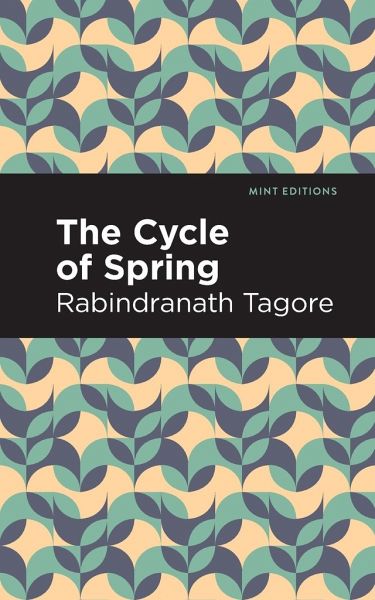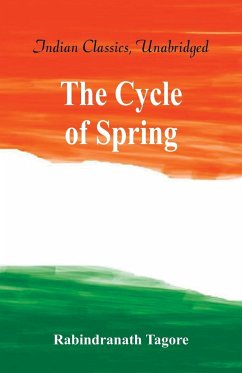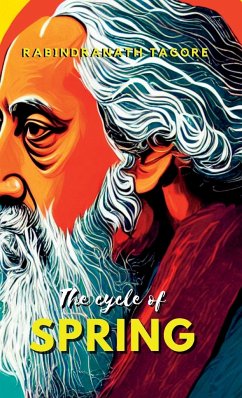
The Cycle of Spring
Versandkostenfrei!
Versandfertig in 1-2 Wochen
6,49 €
inkl. MwSt.

PAYBACK Punkte
3 °P sammeln!
The Cycle of Spring (1919) is a play by Rabindranath Tagore. Translated into English by Tagore after he received the 1913 Nobel Prize in Literature, The Cycle of Spring is a powerful and playful meditation on the cycle of nature, the ethics of leadership, and the regenerative function of art. Spring has arrived and the people are joyous, making music and preparing to celebrate the end of a harsh winter. At the palace, however, the King has discovered two grey hairs, cause for despair in a man obsessed with maintaining a youthful image. As his advisors attempt to focus his attention-a famine in...
The Cycle of Spring (1919) is a play by Rabindranath Tagore. Translated into English by Tagore after he received the 1913 Nobel Prize in Literature, The Cycle of Spring is a powerful and playful meditation on the cycle of nature, the ethics of leadership, and the regenerative function of art. Spring has arrived and the people are joyous, making music and preparing to celebrate the end of a harsh winter. At the palace, however, the King has discovered two grey hairs, cause for despair in a man obsessed with maintaining a youthful image. As his advisors attempt to focus his attention-a famine in Nagapatam requires his immediate intervention; an ambassador from China has arrived-the King summons the court Poet. Tasked with staging a performance for his majesty, the bard puts on a symbolic performance with the hope of inspiring a renewed sense of energy in the palace. This edition of Rabindranath Tagore's The Cycle of Spring is a classic of Indian literature reimagined for modern readers. Since our inception in 2020, Mint Editions has kept sustainability and innovation at the forefront of our mission. Each and every Mint Edition title gets a fresh, professionally typeset manuscript and a dazzling new cover, all while maintaining the integrity of the original book. With thousands of titles in our collection, we aim to spotlight diverse public domain works to help them find modern audiences. Mint Editions celebrates a breadth of literary works, curated from both canonical and overlooked classics from writers around the globe.











![The Pandahem Cycle II [The Saga of Dray Prescot Omnibus #9] Cover The Pandahem Cycle II [The Saga of Dray Prescot Omnibus #9]](https://bilder.buecher.de/produkte/33/33825/33825313n.jpg)

